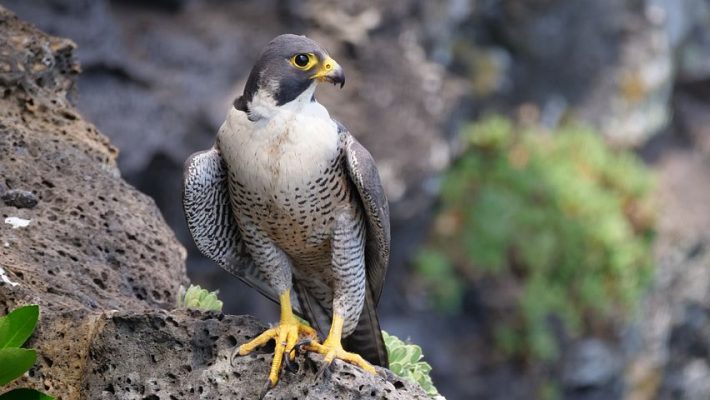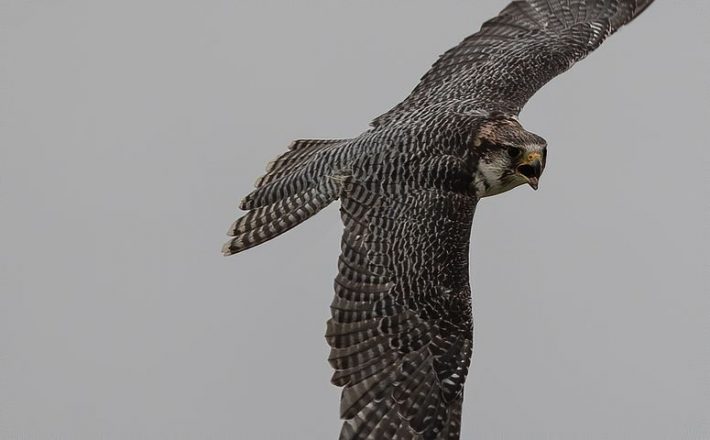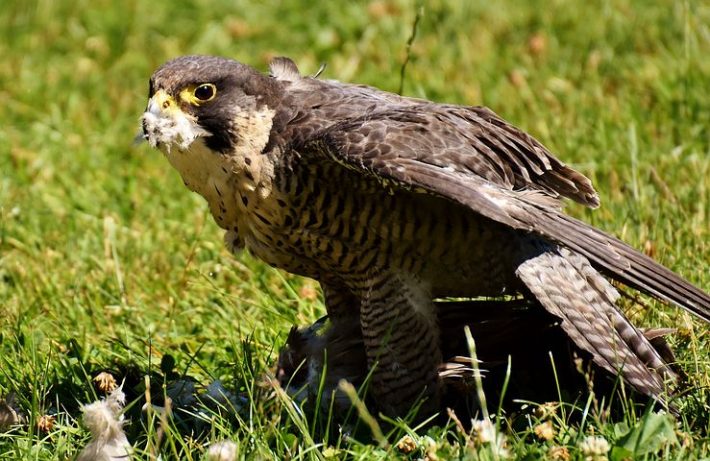A collaborative team explored the impact of COVID-19 on the diets of peregrine falcons across the country (with the help of citizen scientists,) which highlighted the interdependence of humans and animals in our environment.

Published in People and Nature, a new study has highlighted the impact of human behaviour on urban predators by examining the diets of the peregrine falcon during COVID-19 lockdowns. Researchers from King's College London and the University of Bristol determined that falcons were forced to change their diet away from pigeons.
During the study, citizen scientists used online live streams to monitor 31 peregrine falcon nests in 27 UK cities over three breeding seasons – one of which took place during pandemic restrictions.

Due to fewer pigeons being drawn in by human food supplies such as discarded food waste or direct feeding, it was found that London peregrines took 15% less pigeons, replacing them with starlings and parakeets that were more readily available. However in other cities, the peregrine diets remained largely unchanged.
Brandon Mak, co-author of the study, explained "Our results indicate that peregrines in larger, highly urbanised cities may be more dependant on (and thus more vulnerable to) changes in human activities to support their prey populations, particularly feral pigeons."
"The world is still learning about the consequences of lockdowns on wildlife
The changes in diets during the study raises questions surrounding how pest control may affect predators that rely on 'pest' species for food. For example, northern goshawk populations in Poland almost halved when farmers stopped rearing domestic pigeons that would have been prey for them.
Reductions in pest species, which tend to be caused by humans, can force predators to switch prey or forage far away from their nests. This can result in poorer nutrition from less ideal prey species, or a decrease in energy for fitness or reproduction due to the effort spent on hunting.

Mak continues "The world is still learning about the consequences of lockdowns on wildlife, which promises to shed light on how human and animal lives are linked in our shared environments." In the future, Brandon Mak, alongside co-author Ed Drewitt, hope to contribute towards the Global Anthropause Raptor Research Network (GARRN) which brings together similar research conducted during the pandemic.






